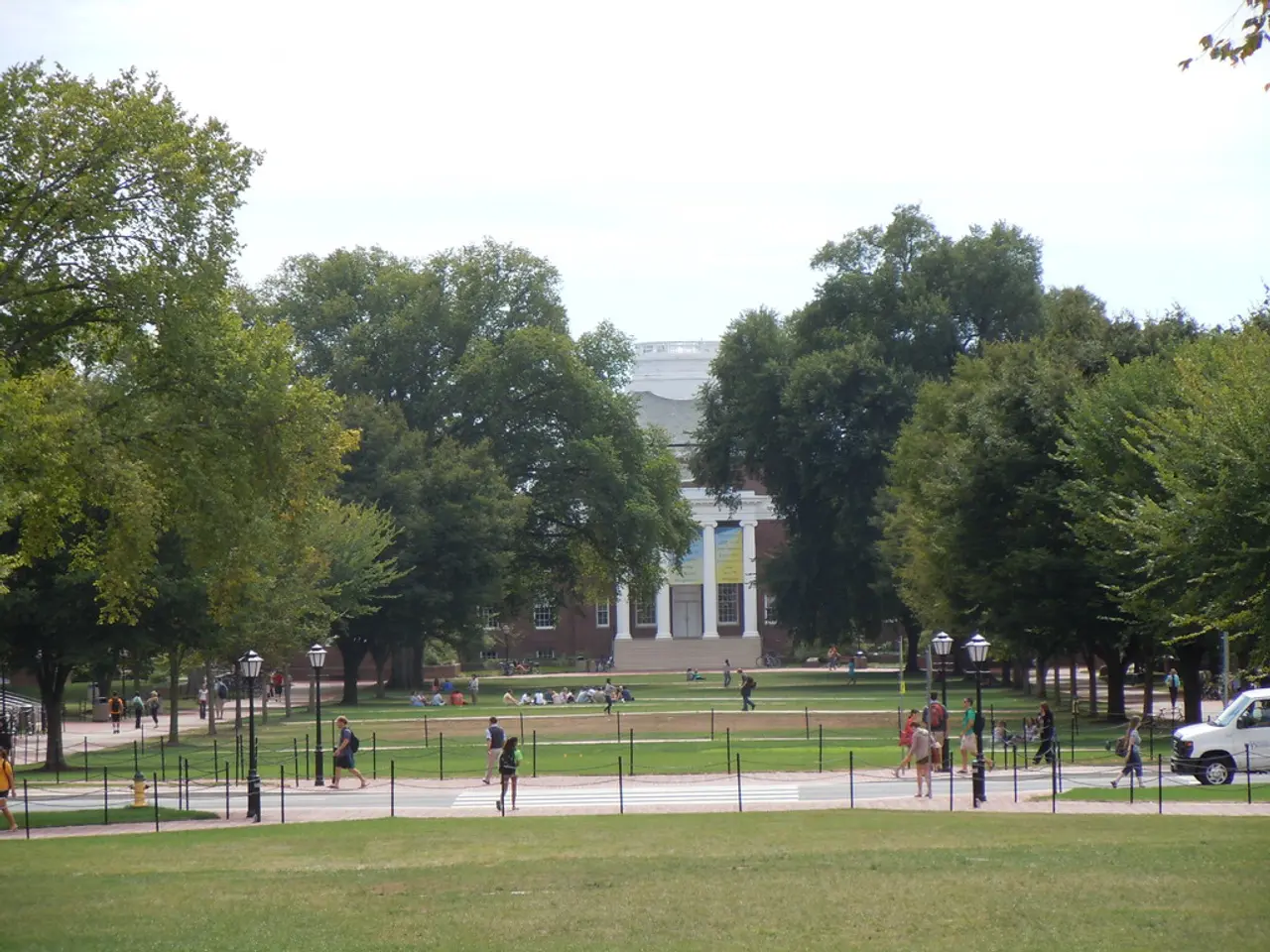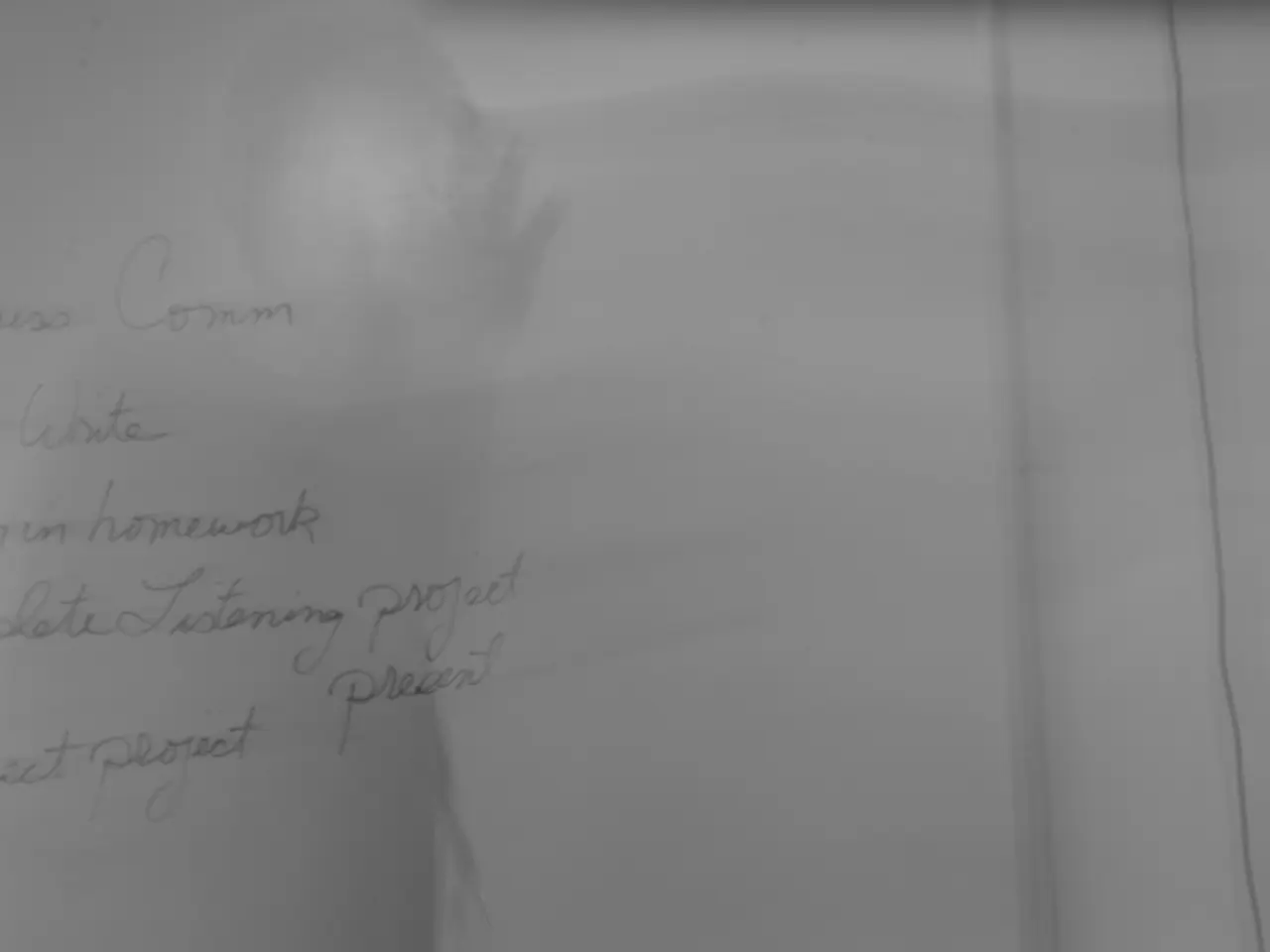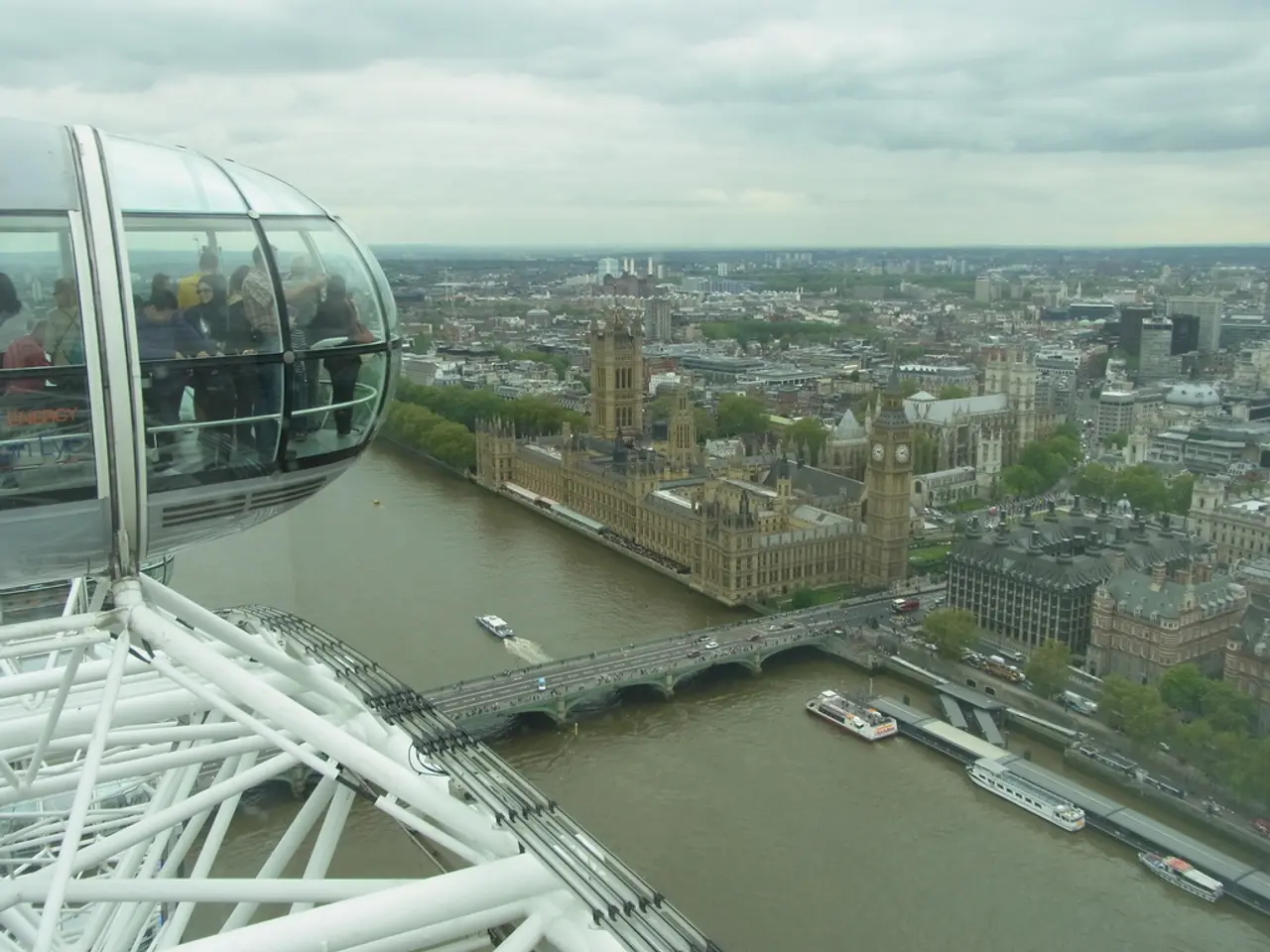Tehran Under Siege: Israel's Air Assault on Iran's Capital
Israeli authorities assert control over airspace extending toward Tehran, Iran's capital city, remaining devoid of defense mechanisms. - Israel claims sovereignty over aerial dominance, leaving Tehran vulnerable with no air defenses in place.
The skies over Tehran erupted in a symphony of explosions last night, as Israeli fighter jets launched a massive attack, targeted at crucial installations within the city. Defence Minister Effie Defrin confirmed these assaults, adding that similar operations had been ongoing since Saturday afternoon. The Israeli Prime Minister, Benjamin Netanyahu, threatened reprisals against "every target" linked to the Ayatollah regime.
The authorities in Iran, through President Mahmoud Pesechkian, warned of a fiercer, more formidable response if Israel persisted with its attacks on Iranian soil. Overnight, air raid sirens blared across Israel, announcing the arrival of Iranian rockets. Explosions rang out across Jerusalem and Tel Aviv, with causalities reported in a residential area in central Israel. The aftermath saw smoke rising in the skies, and 2 civilians were confirmed dead with 19 more injured.
In the days preceding this escalation, at least 34 people were wounded in Iranian rocket attacks on the Gush Dan region near Tel Aviv. Reports indicate that one woman succumbed to her injuries. Urban landscapes near Tel Aviv, in Ramat Gan, displayed heavily damaged buildings, wrecked vehicles, and littered streets. Seven Israeli soldiers were lightly injured by Iranian rockets, the army reported.
These attacks have forced the Ben Gurion Airport in Tel Aviv to remain closed, according to an official spokesperson. Jechiel Leiter, Israel's ambassador to the US, informed CNN that Iran fired around 150 rockets at Israel on Friday in three waves. Israel believes that Iran, with approximately 2,000ballistic missiles, will keep launching them, as per Leiter.
Saturday morning saw smoke and fire above Tehran's Mehrabad airport, according to AFP reporters. The Israeli air force targeted air defense systems in the Tehran region for the first time since the start of this conflict Saturday morning, the Israeli military announced. Various ground-to-ground rocket launchers were also hit.
News agencies across Iran revealed that Israeli attacks targeted cities in the northwest and west of the country, with critical Iranian military facilities situated in these regions. Initial reports state that several fatalities occurred, including Revolutionary Guards and police officers, as well as militia members and civilians in the East Azerbaijan province.
Following these attacks, the United Nations Secretary-General, António Guterres, implored both sides to de-escalate the situation. US President Donald Trump and British Prime Minister Keir Starmer echoed these sentiments in a joint call, emphasizing the importance of diplomacy to contain the tension. German Foreign Minister Johann Wadephul (CDU) appealed for a halt to the hostilities during a meeting in Saudi Arabia. The Middle East region remains tense, Wadephul said Saturday, following his discussion with Saudi Foreign Minister Faisal bin Farhan in Riyadh.
Initial Israeli strikes in June 2025 resulted in the deaths of major Iranian military personnel, including heads of the Iranian Army and the Revolutionary Guards. Additionally, it was reported that vital leaders within the Revolutionary Guards’ air force were eliminated. The Israeli military claimed to have taken out more than 20 key figures in Iran's security apparatus. Crucial Iranian nuclear facilities, such as those in Natanz, Fordo, and Isfahan, also reported sustaining damage. Iran confirmed nine nuclear scientists' deaths.
On Saturday, Netanyahu heralded Israel’s actions as a "severe blow" to Iran's nuclear program. Israel justifies its "preemptive strike" due to the advanced state of Iran's nuclear program. Intelligence claims suggest that Iran could now enrich uranium to military levels, producing an atomic bomb in a brief period.
Keywords:
- Iran
- Tehran
- Air Force
- Effie Defrin
- Tel Aviv
- Israel
- Benjamin Netanyahu
- Large-scale attack
- News agencies
- Jerusalem
- Woman
- Car
- Ben Gurion Airport
- USA
- CNN
- Johann Wadephul
Iranian sources indicate that Israeli strikes have left significant loss of life and infrastructure damage. Iranian state media reports three Revolutionary Guards and two police officers dead. Iranian news agencies reported at least 30 militia members dead and dozens injured in the East Azerbaijan province.
The International Atomic Energy Agency (IAEA) suggests that, following these devastating attacks, Iran has significantly increased its stockpile of uranium enriched to 60 percent in recent months. The current state of the uranium enrichment process is concerning, as an enrichment level of around 90 percent is required for the production of nuclear weapons.
Enrichment Data:
Following the large-scale Israeli attacks on Iran in June 2025, the status of Iran’s nuclear program has been significantly impacted, though the full extent of the damage and any long-term setbacks remain under assessment.
Key Developments
- Multiple Strikes on Nuclear and Military Infrastructure: The Israel Defense Forces (IDF) have conducted targeted attacks on several nuclear sites, especially in the Tehran region, as well as key missile bases and military infrastructure across Iran[3][1].
- Damage to Military and Nuclear Facilities: Satellite imagery and military reports confirm that missile bases, such as Amand and Southwest Tabriz, have been damaged. These bases reportedly store advanced ballistic missiles previously used in attacks on Israel[1]. The IDF has also targeted the Artesh Air Force 2nd Tactical Airbase in Tabriz[1].
- Degradation of Iran’s Retaliatory Capabilities: Israeli strikes have reportedly made it more difficult for Iran to deploy its ballistic missile arsenal, as key launchpads and storage facilities were compromised. This led to Iran launching far fewer missiles in response than originally planned[1].
Implications for the Nuclear Program
- Setbacks in Nuclear Program: The repeated targeting of nuclear and military sites is likely aimed at setting back Iran’s nuclear ambitions. Analysts suggest that such attacks, especially when coordinated with intelligence operations and assassinations of key personnel, can significantly delay or complicate Iran’s progress[2].
- International Context: The attacks occurred amid escalating tensions over Iran’s nuclear compliance, particularly after the IAEA announced Iran was no longer in compliance with its obligations under the Non-Proliferation Treaty (NPT), and following the expiration of the Trump administration’s deadline for a nuclear agreement[2].
- Ongoing Assessments: While specific technical details about the damage to nuclear enrichment infrastructure remain classified or incomplete, the broad scope of the attacks indicates a concerted effort to disrupt both Iran’s nuclear and missile capabilities[3][1].
Broader Consequences
- Negotiation Stalemate: Iranian state media has officially withdrawn from scheduled talks with the U.S., citing the attacks and ongoing tensions. The primary sticking point remains Iran’s insistence on its right to enrich uranium for peaceful purposes, versus U.S. demands to halt enrichment[2].
- Regional and Global Impact: The attacks have further strained Iran’s ability to project military power, but also risk escalating regional conflict and complicating international diplomatic efforts[2][1].
- The International Atomic Energy Agency (IAEA) reports that Iran has substantially increased its stockpile of uranium enriched to 60% since the Israeli attacks, a development that is cause for concern given the estimated 90% enrichment level required for nuclear weapons production.
- Effie Defrin, the Defense Minister of Israel, has confirmed the Israeli Air Force's targeted attacks on crucial Iranian installations in Tehran, including the Artesh Air Force 2nd Tactical Airbase in Tabriz, as part of a coordinated effort to set back Iran's nuclear ambitions.
- According to Israeli military reports, swathes of Iran's missile bases, such as Amand and Southwest Tabriz, have been compromised in these strikes, potentially hampering Iran's ability to quickly retaliate through the deployment of advanced ballistic missiles.








